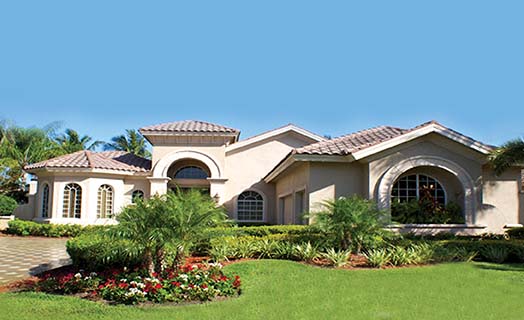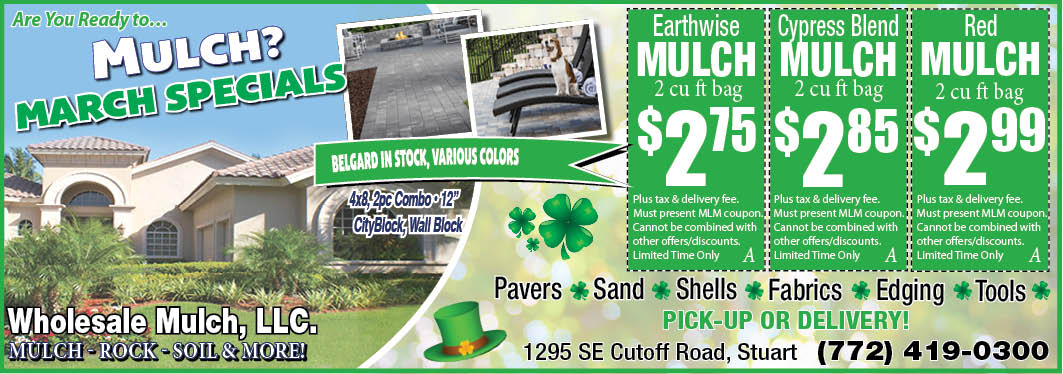Wholesale Mulch
- WHOLESALE MULCH
- LIMITED DEALS AVAILABLE
Exclusive Savings
SEE COUPONSAbout this business…
Feeling the Heat? So if your garden.
Mulch – Rock – Top Soil – Sod
Mulch retains moisture at the roots to keep them cool.
Applying mulch is one of the best things you can do for your flower and plant beds, trees and vegetable garden. Mulch is a layer of organic or inorganic material that is spread out on top of the soil to protect against erosion and conserve moisture. Both organic and inorganic mulches have many benefits, although organic mulch actually enriches the soil. Mulch helps plants maintain a more even soil temperature and prevents weed growth to reduce garden maintenance. In addition, mulch gives your garden beds a neat, landscaped appearance. Before you buy mulch, consider the following questions:
- Are you looking for a way to reduce weed growth?
- Does your garden need mulch that will improve the soil?
- When is it appropriate to use landscape fabric as mulch?
- How much wood mulch should you apply for best results?
- How long do you want your mulch to last?
Organic Mulch, Inorganic Mulch and Application
There are two basic types of mulch, organic and inorganic. Both act as ground cover and offer the benefits of insulating and retaining soil. Organic mulches break down after a season or two and need to be reapplied. In this way, they actually enhance the soil by adding organic material. Inorganic mulches are more permanent, but they do not improve the soil structure. Other types of mulch vary according to their appearance and longevity. Before you add mulch to your garden, you’ll want to take a few minutes to learn about how much you should apply, both for the benefit of your plants and to prevent yourself from buying too much or too little material.
Organic Mulch: Many organic mulch materials can be found in your own yard, such as grass clippings, leaves and pine needles. Newspaper is excellent mulch for vegetable gardens, as it keeps weed growth down and protects low-hanging vegetables. Composted manure is also excellent for vegetable gardens but will not work for front yard gardens for obvious reasons. Hay and straw work well, especially when you need mulch that is light and airy, such as a lawn cover after applying grass seed. There are also several attractive wood mulches that can be purchased.
- Organic mulch fertilizes sandy soil and helps hold water and nutrients
- Bark mulch lasts for one to three years, then may require reapplication
- Smaller wood chips are easier to spread around smaller plants
- Be aware that hay and straw mulch may harbor weed seeds
- Pine needles increase soil acidity, making them ideal for use around acid-loving plants
Inorganic Mulch: Inorganic mulch includes stone, landscape fabric and plastic. Though these materials are not as beneficial to the soil as organic mulch, they last much longer. Black plastic does not work well in landscaping but may be useful in a vegetable garden. Landscape fabric is applied to the surface of soil before planting and is porous so it allows water in but keeps weeds out. Stone is used on paths, around walkways and around permanent plantings, such as shrubs and trees. Stone does not work well for vegetable or flower gardens.
- Black plastic is best used in areas where drainage is good as it retains water
- Do not use landscape fabric for plants and flowers that spread as they grow
- Cover landscape fabric with decorative mulch to enhance its appearance
- Do not use stone around acid-loving plants as it may add alkalinity to soil
- Stone mulch reflects heat in summer, so locate plants accordingly


